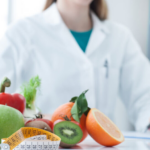
Colon cancer, once considered a disease of older adults, is increasingly affecting younger generations. This alarming trend highlights the need for greater awareness and understanding of the risk factors, symptoms, and treatment options for colon cancer among today’s youth.
Understanding Colon Cancer
Colon cancer, also termed as colorectal cancer, develops when abnormal cells proliferate uncontrollably in the colon or rectum. While the exact cause of colon cancer is not fully understood, certain risk factors, including family history, a sedentary lifestyle, poor diet, obesity, and smoking, can increase an individual’s likelihood of developing the disease. Signs of colon cancer might comprise alterations in bowel patterns, presence of blood in stool, abdominal discomfort, and unexpected loss of weight.
Impact on Today’s Youth
Traditionally, colon cancer has been associated with older age groups. However, recent studies have shown a concerning rise in the incidence of colon cancer among younger adults, including those in their 20s, 30s, and 40s. This shift in demographics underscores the importance of recognizing the signs and symptoms of colon cancer at a younger age and seeking timely medical attention for diagnosis and treatment.
Risk Factors for Young Adults
Several factors may contribute to the increased risk of colon cancer in younger adults. These include a sedentary lifestyle, unhealthy dietary habits high in processed foods and red meat, obesity, smoking, excessive alcohol consumption, and a family history of colon cancer or genetic Genetic conditions like Lynch syndrome or familial adenomatous polyposis (FAP) can increase the risk of developing colon cancer. Additionally, conditions such as inflammatory bowel disease (IBD) and certain hereditary conditions can also elevate the risk of developing colon cancer at a younger age.
Early Detection and Treatment
Early detection is key to effectively managing colon cancer and improving outcomes. Screening tests such as colonoscopies, fecal occult blood tests (FOBT), and stool DNA tests can help detect colon cancer in its early stages when treatment is most effective. Depending on the stage and severity of the disease, treatment choices for colon cancer can involve surgery, chemotherapy, radiation therapy, targeted therapy, and immunotherapy.
Support and Resources
Receiving a diagnosis of colon cancer can be overwhelming, especially for young adults who may not expect to face such a disease. It’s essential for individuals diagnosed with colon cancer to seek support from healthcare professionals, support groups, and loved ones to navigate their journey and make informed decisions about their treatment and care.
Summary
Colon cancer is no longer just a disease of older adults; it is increasingly impacting younger generations. Recognizing the signs and symptoms of colon cancer, understanding the risk factors, and seeking timely medical attention are crucial steps in addressing this growing health concern. For comprehensive colon cancer treatment in Pimple Saudagar, Pune, individuals can rely on Cancer Care Pune, under the expert guidance of Dr. Jagdish Shinde, one of the Best Oncologists in Pune. Dr. Shinde specializes in providing personalized care and innovative treatment options to his patients, ensuring the best possible outcomes.
FAQs about Colon Cancer
- What are the risk factors for developing colon cancer at a young age?
- Risk factors for colon cancer in young adults include a sedentary lifestyle, unhealthy diet, obesity, smoking, excessive alcohol consumption, and family history of the disease.
- What are the screening options for colon cancer?
- Tests for colon cancer screening encompass colonoscopies, fecal occult blood tests (FOBT), and stool DNA tests.
- What treatment options are available for colon cancer?
- Treatment choices for colon cancer may consist of surgery, chemotherapy, radiation therapy, targeted therapy, and immunotherapy, which vary depending on the stage and severity of the disease.
- How effective is treatment for colon cancer?
- The effectiveness of treatment for colon cancer depends on various factors, including the stage of the disease, the patient’s overall health, and the response to treatment. Early identification and prompt intervention can enhance treatment results.
- Are there support services available for individuals diagnosed with colon cancer?
- Yes, there are numerous support services available for individuals diagnosed with colon cancer, including healthcare professionals, support groups, and counseling services.
- Can colon cancer be prevented?
- While not all cases of colon cancer can be prevented, individuals can reduce their risk by maintaining a healthy lifestyle, including regular exercise, a balanced diet high in fruits and vegetables, limiting alcohol consumption, avoiding smoking, and undergoing regular screenings as recommended by healthcare providers.




